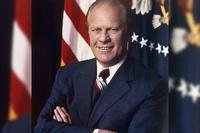WASHINGTON -- A new program is training soldiers to drive commercial trucks when they transition out of the Army.
A Pentagon ceremony recognized a partnership between the Industrial Training Center at Fort Sill, Oklahoma, the Teamsters Military Assistance Program and ABF Freight -- now helping train soldiers for civilian jobs when they separate.
Officials estimate more than one million soldiers will leave the Army over the next 10 years. Programs involving industry partners and other agencies that prepare veterans for jobs are an integral aspect of "Soldier For Life" transition assistance.
"I can't think of any profession or organization that would not benefit from the values our veterans embody," said Lt. Gen. James C. McConville, Army G-1.
"Our trusted professionals deserve every opportunity to apply the skills, knowledge, leadership and experience they gained during their time in the Army" to the civilian workforce, McConville said.
McConville emphasized that the Army needs to ensure each soldier's transition provides a smooth takeoff into a civilian career.
"We owe it to them to help them leave the Army career-ready and able to find them meaningful employment to continue serving their communities with the skills and values they learned," McConville said.
Col. Glenn A. Waters, Fort Sill garrison commander, said besides truck driving opportunities, installations have a range of other options, from electrical engineering, construction, steamfitters and so on.
A year out from separation, soldiers are briefed on programs available to them at their installation, he said. They can volunteer for them and then go through a vetting process by the company to ensure they're the right fit.
The Army does a vetting process as well, Waters said, because "we want to put the right person in the right job. They're investing money and time and so is the Army, so we want to ensure the screening process is working."
Soldiers who do not have experience as truck drivers, electrical engineers or in other trades are not automatically screened out. They might have certain experiences or aptitudes that would point to later success in their new fields, he said.
James P. Hoffa, the general president of the International Brotherhood of Teamsters emphasized the importance of helping transitioning service members.
"We have to make that happen," he said. "It's a dream we've had. It's finally coming together."
Tim Thorne, president of ABF Freight, is an Army veteran and said helping veterans get jobs is personal.
Veterans are resilient and can quickly adapt despite adversity, Thorne said.
"They can overcome hardships and trauma," he said. "They can excel, even in the face of harsh environments. Veterans have advanced team-building skills and [a] strong organizational commitment.
"There are many times I miss the Army and military life."
"Veterans bring value to employers, schools and communities," McConville said. Proper caring for transitioning soldiers sends a clear signal to those generations of Americans who make up the future of the all-volunteer force.
"Future soldiers will decide whether to serve, based in part, by the way we take care of our veterans and how we support our transitioning soldiers as they reintegrate back into civilian life," McConville said. "We've got a solemn obligation to take care of our soldiers, even as the Army is in the midst of a drawdown."
Want to Know More About the Military?
Be sure to get the latest news about the U.S. military, as well as critical info about how to join and all the benefits of service. Subscribe to Military.com and receive customized updates delivered straight to your inbox.











